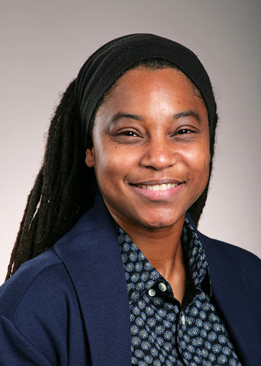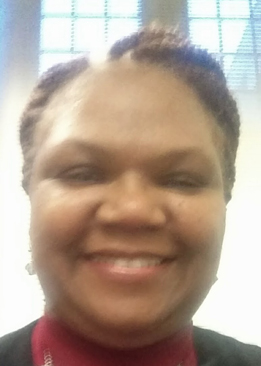
By Dawn Scotland
The Truth Reporter
The University of Toledo’s Department of Africana Studies collaborated with the Department of Women’s and Gender Studies to host a virtual ‘Black Women Health & Healing’ panel Wednesday, March 16. The event featured four esteemed panelists and door prize giveaways.
Panelists for ‘Black Women Health & Healing’ included:
- Angelica Simmons, J.D., founder and executive director of the Fannie Lou Hamer Institute for Advocacy and Social Action;
- Amanda Hill — Healing By Choice! collaborator, Detroit-based community organizer, abolitionist and Reiki practitioner;
- Ameisha Tutwiler, UToledo M.D./MBA candidate and developer of medical school curriculum on medical racism and systemic health inequity;
- Tanisha Hoover, NMD, BSN, RN, naturopathic physician, CEO and founder of RxForHealth.
Rachel Dudley, PhD, assistant professor of Women’s and Gender Studies, and Professor Angela Siner, director of the Africana Studies Program, facilitated the virtual event.
Siner opened with a quote from late activist Audre Lourde: “Caring for myself is not self-indulgence, it is self-preservation and that is an act of political warfare.” The panelists shared their expertise and personal experiences surrounding generation trauma, burnout and mental health struggles and the tools and strategies to overcome those challenges.
“With the amount of trauma black people experience in society… [it is important to] figure out how to re-center in our own bodies while we are facing all of these different societal injustices and harms on a regular basis,” suggested Amanda Hill.
Along with the importance of getting to the root problems through therapy, healthy diet and spiritual work the panel collectively suggested holistic ways to address the repeated stressors of life.
- Cultivate and prioritize joy:
”It is incredibly important to remember our joy and to reconnect with it even when we are facing all the various trauma that we experience throughout our lives,” said Amanda Hill. “Once we lose our joy we lose our hope and hope is what keeps us going.” Instead of focusing on the negative, emphasis must be placed on joy.
The panel shared what they do personally to preserve joy in their daily lives. Hill spoke about the importance of cultivating joy and sharing that within the community. At her organization, Healing by Choice, participants share how they cultivate joy in a group setting.

Dr. Hoover suggested doing things that children do. Coloring books, trampolines, play grounds, listening to music. What from childhood brings you joy? She encourages her clients to find what works for them whether it be childhood fun, podcasts, social media, or positive videos.
Tutwiler, M.D./M.B.A. candidate, also draws in coloring books. In her own practice she challenges her clients that say they do not have time for joy.
“You don’t have the time for joy? But you have the time for stress?…“Do you not have the time to brush your teeth? Getting joy and prioritizing is like brushing your teeth. You have to make time for it. Joy must be a part of your daily schedule and prioritized.”
Participants in the chat suggested gardening, doing their hair, and sharing a meal with friends. Not only is it important to figure out what brings you joy, it is important to make space for it.
- Set boundaries and expectations as self-preservation
“Boundaries are a practice of self-love. To be able to say this is the way I can be healthy… everything outside of that I have to gently remind myself to say ‘no,’” said Hill.
Hill puts up an auto responder on work emails detailing a timeframe for when she will respond. She encourages setting expectations upfront on the work you will do or not do. Dr. Dudley emphasized saying “no” and refraining from people-pleasing.
Reframe boundaries not as defeat but an opportunity for someone else. Tutwiler emphasized that boundary setting is a way to open the door for someone else to have an opportunity.
- Ask for help instead of doing it alone
Along with making time for joy and saying “no,” reframing the idea of “the strong Black woman” is necessary.
Black women are seen as the rocks in families and are often portrayed as such, often making us feel as though we must take on more responsibilities. The panel challenged that moniker and its harm to black women.
“We need to redefine what it means to be strong and what it looks like… there is strength in asking for help, there is strength in delegating. There is so much power in that.” Get in the practice of asking for help and being vulnerable. When people offer help, take it. The group emphasized the importance of community and not functioning in silos to avoid chronic stress and burnout.
The evening concluded with a live Q&A chat with participants in the virtual meeting as well as prize giveaways to local businesses. ‘Black Women Health & Healing’ was an intersection of Black History Month and Women’s History Month with reference to such black heroines such as Fannie Lou Hammer, Zora Neal Hurston and Andre Lorde. Panelists discussed the importance of healing work not only for ourselves but accomplishing that to lead by example for future generations.
